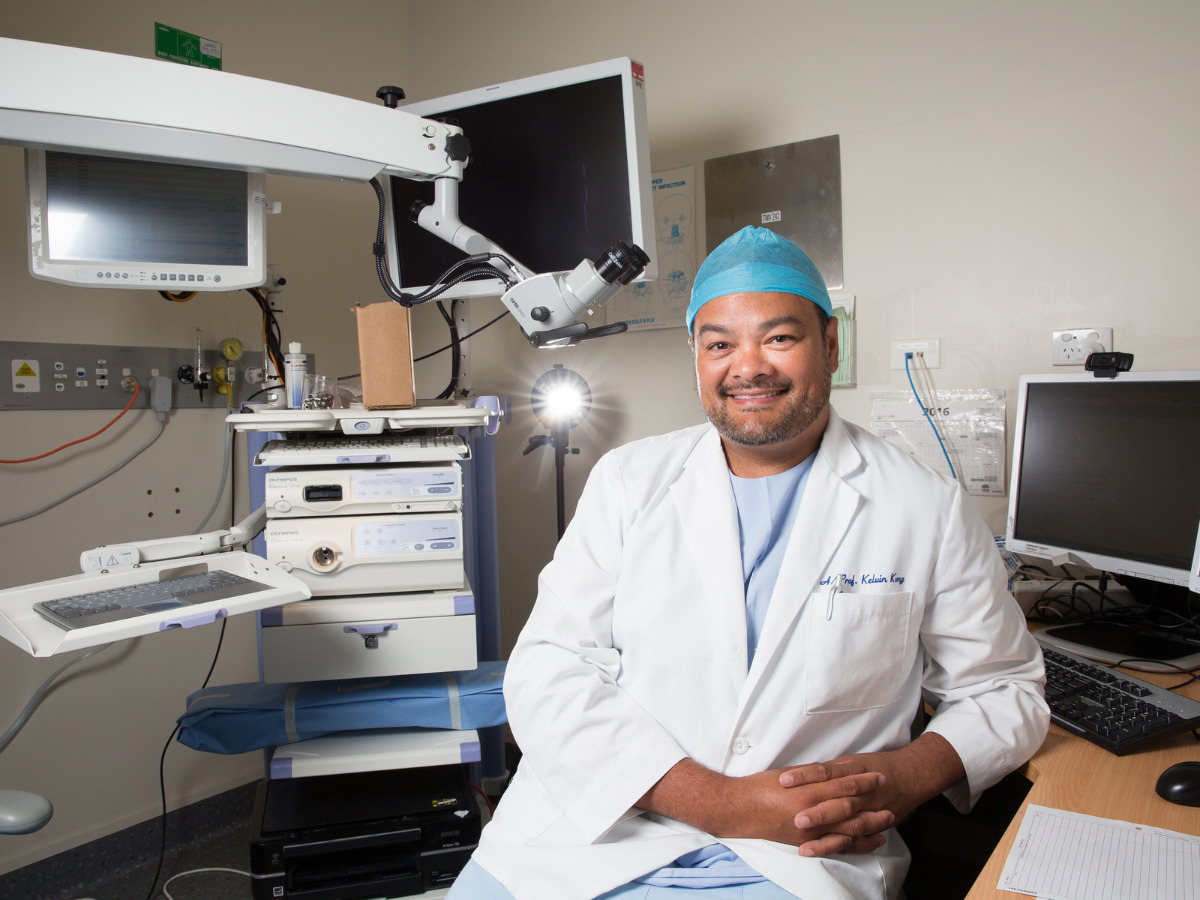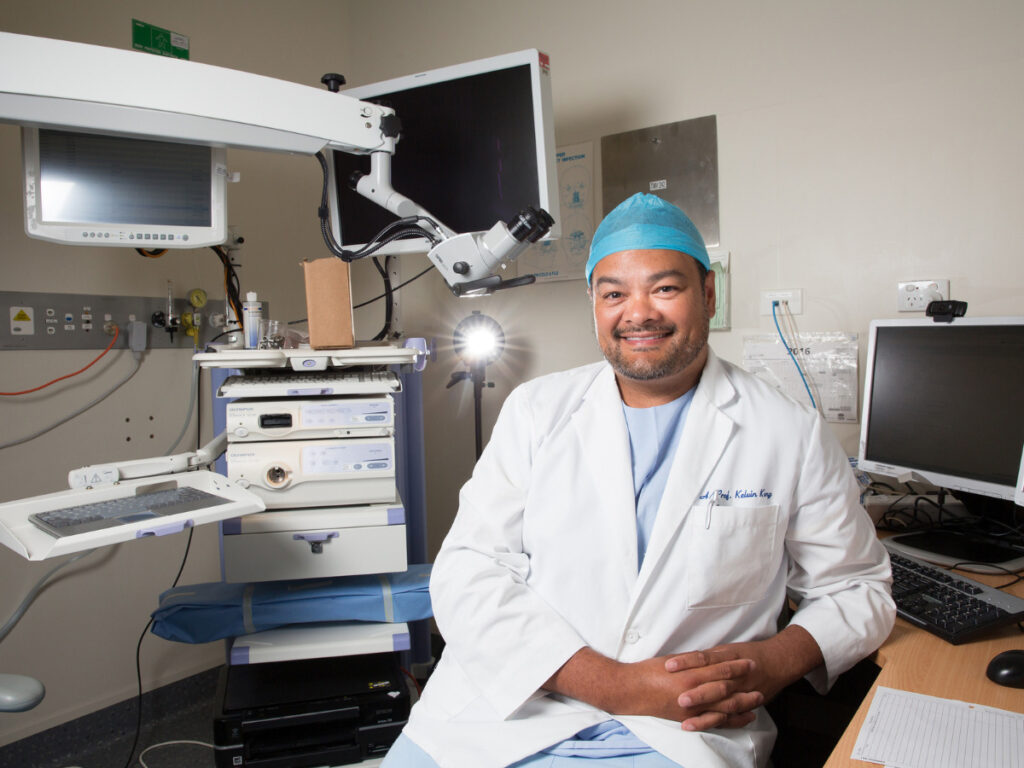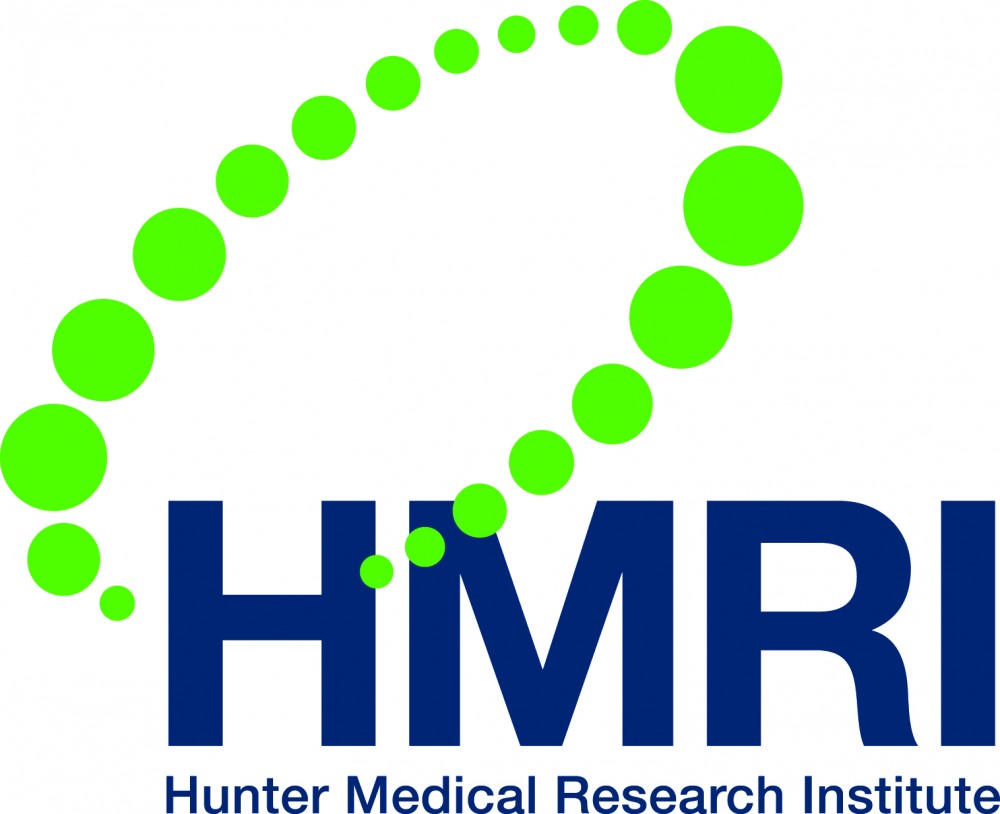Professor at the Hunter Medical Research Institute, Kelvin Kong has been awarded the prestigious 2023 National NAIDOC Person of the Year at the NAIDOC Week Awards Ceremony held in Brisbane earlier this week.
The recognition bestowed on Kelvin is a testament to his unwavering dedication and groundbreaking contributions that continue to make a profound impact on the health and well-being of Indigenous Australians.
A proud Worimi man, he has dedicated his career to bridging the gap in health and learning outcomes between Indigenous and non-Indigenous Australians.
His exceptional work in research and surgery has garnered admiration from colleagues and patients alike with the award nomination coming from his work colleagues.
Kelvin expressed his gratitude and acknowledged the collective efforts of those working in this field.
“I wasn’t expecting this,” Kelvin said.
“I hold these awards in such high regard, so to be up here in front of you and receiving this on behalf of my community I’m super proud.
“There are so many people who do so much work in this space that don’t receive this kind of platform to talk and share their experiences.
“So, I do want to acknowledge and pay my respects to them, they have done such amazing work in this space.”
Kelvin highlighted the sobering reality of the health challenges faced by Indigenous communities while also paying tribute to his family.
“Thank you for acknowledging that hearing health is so vitally important for all of us. I stand here before you because of the opportunities that our Elders gave all of us,” Kelvin said.
“To my family, my wife Carrie, and my kids who are at home, thank you for sharing me and for allowing me to do some wonderful work.”
This is not the first time Kelvin’s remarkable contributions have been acknowledged. In 2021, he was named Newcastle Citizen of the Year and received the esteemed Australian Society of Medical Research Medal.
In addition to his research and clinical practice, Kelvin frequently travels to remote areas of Australia to provide specialised ear, nose, and throat (ENT) services to Indigenous patients.
His commitment to improving access to healthcare and breaking cycles of disadvantage for Indigenous Australians is further demonstrated through ongoing research and community outreach programs.







